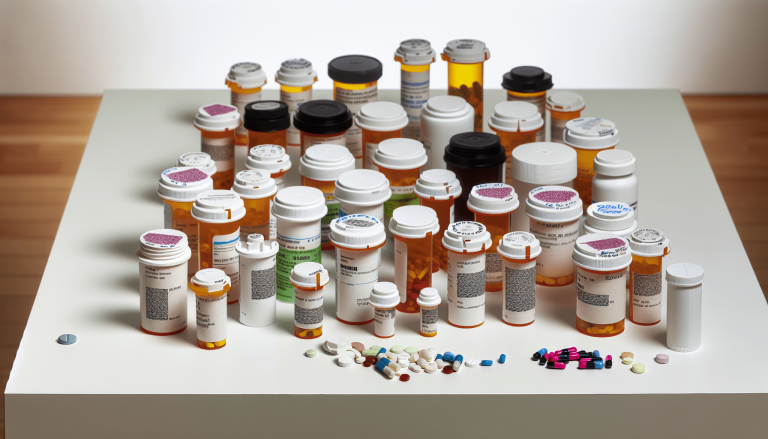Struggling with porn addiction can feel isolating, but effective help is within reach. This article dives straight into actionable porn addiction help, providing immediate strategies to initiate your journey toward recovery. Expect to learn practical steps that tackle internet pornography addiction at its core and support resources that can make a difference.
Key Takeaways
Porn addiction is characterized by compulsive viewing of pornographic material, often driven by psychological factors including unfulfilled emotional needs; it has parallels with substance abuse, including its effect on the brain’s dopamine system.
Immediate strategies for combating porn addiction include recognizing personal triggers, implementing digital controls, seeking early intervention, and developing healthy routines such as physical exercise and mindfulness practices.
Treatment options for porn addiction involve individual therapy, group support dynamics, family and couples counseling, and, in some cases, medications; incorporating lifestyle changes and recognizing the need for professional help are vital for a successful recovery.
Understanding Porn Addiction and Its Dynamics

Porn addiction is an unhealthy and excessive consumption of porn, which interferes with key aspects of someone’s life. It goes beyond watching pornographic material. It often involves a complex mix of psychological elements such as unmet emotional requirements or the need for thrill and escape. Watching pornography can be evidence that someone suffers from compulsive sexual behavior issues, making matters more complicated. This type of internet addiction has been linked to substance abuse in terms of behavioral addictions since it impacts the dopamine system similarly – resulting in dependency on these activities/materials due to online accessibility leading individuals into being addicted to internet pornography – thereby showcasing the importance for education and help around this issue.
For a greater understanding of porn addiction, one needs to analyse its interpretation by looking at what fuels/drives it psychologically speaking.
Defining Porn Addiction
The American Psychiatric Association does not officially recognize porn addiction in its Diagnostic and Statistical Manual. This compulsion of excessive pornography consumption has visible negative impacts on everyday life. Nearly 9 percent have failed to discontinue their engagement with pornographic content, signifying the difficulty they face when trying to break free from it.
Pornography dependency can disrupt emotional as well as physical relationships and may cause individuals to act recklessly in pursuit of sexual satisfaction. For example, consuming obscene material at inappropriate locations due to uncontrolled libido desires or cravings. So what psychological components lead someone down such a path?
The Psychology Behind Porn Addiction
Porn addiction is thought to be the result of unresolved emotional pain, as well as issues around loneliness and forming close connections with others. When these feelings are combined with mental health difficulties like depression or anxiety, it can cause an obsessive cycle that includes compulsive watching of pornography for relief.
As this behavior continues over time, people begin to experience a stronger bias towards sexual images and reduced functioning in other areas too, how does porn addiction compare then to other addictions?
Comparing Pornography Addiction to Other Addictions
Understanding porn addiction is key to tackling it. It activates the brain’s dopamine system which causes an overwhelming sense of dependency, and may be classified as a compulsion rather than simply an addiction like substance abuse. Although similar in some ways, this type of addiction focuses on consuming pornography while sex addiction revolves more specifically around engaging in sexual intercourse activities. Now that we have gained knowledge on porn addictions, it’s time to look for possible solutions or countermeasures.
Immediate Steps to Curb Porn Addiction
Understanding and managing how porn addiction may be is essential to helping someone with their addiction, so it’s important to take swift action. To do this, an individual must be aware of their triggers as well as put controls in place to help minimize the risk. Engaging in activities such as exercising regularly or finding a hobby can aid individuals on their recovery journey from addiction. Getting early intervention should also form part of any approach: professional support will provide resources that may prove invaluable during treatment for pornography dependence. In summary, identifying personal triggers that prompt addictive behaviour (instating preventative measures), creating new routines like physical activity/meditation, etc., and seeking timely assistance when needed – are all key steps taken towards recovering from Porn Addiction.
Recognizing Triggers and Implementing Controls
Addiction to pornography can be managed by first recognizing its triggers, such as feelings of frustration and broken relationships or sexual urges and fantasies. Cognitive Behavioral Therapy (CBT) is an effective means for individuals to change their patterns of thinking and behaviour in order to form strategies for coping with the emotions associated with these stimuli. Coping tactics like recognising particular cues that contribute towards addiction, finding healthy outlets when feeling distressed, and using mindfulness techniques e.g. meditation could help manage urges connected with porn use.
Establishing Healthy Routines
Creating a routine is an essential step to recovering from pornography and other addictions too. This kind of regularity gives more control over temptation, and also positively affects one’s mental health state.
In order to set up such a regimen successfully, it might be necessary to seek professional help. Understanding personal triggers can assist in building healthy habits like adequate sleep patterns, balanced nutrition intake as well as physical activity, and useful stress management techniques. Engaging with spiritual practices could prove beneficial for beating the illness linked to porn addiction.
Seeking Early Intervention
When it comes to dealing with addiction to pornography, early intervention is essential. Indicators behavioral addiction that suggest the need for urgent action include having a constant urge to watch porn continually, being unable to control or stop consuming such material as well as not meeting professional and personal commitments because of this issue.
Treatment options like psychotherapy combined with support from friends and family members can be beneficial in initiating an early response towards tackling this problem effectively.
Navigating Porn Addiction Treatment Options

It is essential to explore treatment options for porn addiction and working through this process can be daunting. All-inclusive therapies should include family therapy, individual counseling sessions, as well as group work. All are designed to help with overcoming pornography dependency. A deeper examination of these treatments is necessary when managing an addiction to porn. Treatment plans might comprise intensive forms such as one on one counselling or involve the whole family in healing progress by embracing approaches like family therapy too – so that each person affected by someone’s behavior towards watching porn/viewing pornographic content will be affected.
Individual Therapy
Individual therapy is a key factor in addressing the issue of porn addiction. It works by targeting and understanding the root causes as well as the addictive tendencies, and it offers insight into this behaviour. Cognitive-behavioral therapy (CBT) and psychodynamic treatments are two beneficial approaches for dealing with pornography dependency.
CBT helps people recognize their thoughts or behaviours which may be contributing to their issues related to porn use. Psychoanalysis can help individuals understand why they might have become addicted to porn in the first place while providing tactics on how best they can manage any cravings that arise from these feelings about pornography addiction.
Group Support Dynamics
Group support is a way to assist individuals struggling with porn addiction in various ways: it can help them feel less isolated and lessen the shame, create an atmosphere of camaraderie and responsibility as there are different types of support groups available such as men’s therapy programs for those who need recovery from pornography use or sex addict meetings.
Anonymous group assistance offers security paired with non-judgmental behavior. Encouraging experiences be shared openly, offering emotional aid while reducing feelings of loneliness plus spurring motivation through community and being accountable for actions related to addiction concerning porn or any other form.
Family and Couples Counseling
The impacts of porn addiction on relationships can be addressed and healing promoted through family or couples counseling. This type of therapy is an opportunity for both partners to express their feelings, comprehend the root causes behind the addiction, and develop healthier coping strategies such as communication skills. Family counseling may also help alleviate any fears, anger, and stress associated with unhealthy relationship with pornography by providing a comforting space within which understanding between all members can improve while growth continues. Addiction-related topics are at its core. It creates a secure setting that encourages improvement in overall well-being too.
Medications That Can Assist in Porn Addiction Recovery

When it comes to recovering from porn addiction, medications may be a helpful tool – particularly in cases where co-occurring mental health issues are present and when the drug is used specifically for addictive behaviors. Before utilizing any form of medication as part of an any drug addiction treatment plan, consulting with either one’s healthcare provider or psychiatrist should always come first for the best results that protect both safety and management levels.
Addressing Co-existing Mental Disorders
When dealing with porn addiction, it is common for individuals to experience accompanying mental health issues such as stress, anxiety and depression. Addressing these conditions is difficult. Treating the actual substance abuse problem can significantly improve one’s chances of successful recovery from both addictions and mental health disorders.
A comprehensive treatment plan that focuses on targeting all aspects of drug use, as well as any underlying psychological factors, should be put into place when a person presents symptoms related to pornography or other forms of substance misuse. This dual approach will ensure that all aspects are being addressed so they may find long-lasting success in conquering their battle against an addiction fueled by porn usage and/or its associated disorders.
Off-label Uses for Addiction Management
Using medications for conditions other than their intended use may be beneficial in the management of porn addiction. Medications that are not explicitly approved to treat addiction yet have proven successful at subduing cravings or dealing with related problems, known as off-label medications, might help manage this condition.
Naltrexone is one such medication. It could potentially lead to withdrawal signs among those who physically depend on opioids.
Lifestyle Modifications to Support Recovery from Pornography Addiction

Making positive changes to one’s lifestyle can be hugely advantageous in overcoming an addiction to pornography. This could include creating healthier digital habits, exercising more regularly and engaging with meaningful relationships, all of which are essential steps towards recovery from a porn dependency.
Digital Well-being and Internet Controls
In the process of recovering from addiction to pornography, digital health and a solid approach to managing internet use are vital. Limiting time spent viewing porn on devices or online by employing apps with content blockers, activity trackers, as well as access to educational materials can help in reducing exposure and consumption of pornography significantly.
To achieve that goal, it’s recommended to take advantage of parental controls settings available through most Internet service providers (ISPs) which include features such as screening tools, web filtering options or even screen-time restrictions if needed.
Physical Activity and Mindfulness Practices
Physical fitness can be a positive replacement for addictive tendencies, leading to general good health. By engaging in mindfulness techniques such as meditation, individuals are able to become aware of their feelings and actions. This consciousness gives them the power necessary to combat addiction successfully.
Building Meaningful Relationships
Creating strong, sexual, and intimate relationships is essential in helping to conquer pornography addiction by forming trustful bonds and setting clear boundaries. Meaningful connections can Enhance an individual’s dedication toward overcoming the issue of pornographic dependency and give them the emotional support they need for a successful recovery.
When Professional Help Is Necessary
Understanding the intensity of porn addiction and accessing appropriate support is critical when recognizing that professional help for it is needed. All relevant facts should be taken into consideration in order to seek out this kind of assistance effectively.
Recognizing the Severity of Addiction
Acknowledging the serious negative impact of porn addiction and its potentially devastating influence on everyday life is crucial. Those who are feeling withdrawal symptoms, have tried to stop using pornography but have been unsuccessful, or whose habit has severely disrupted their normal routines should seek professional help.
Accessing Resources and Healthcare Professionals
Obtaining access to healthcare professionals and resources for an effective treatment approach towards overcoming porn addiction is essential. Such aid can include professional help from mental health professionals and specialists who specialize in excessive use of pornography, as well as self-help groups or other support systems devoted to this struggle with addictions related to pornographic content.
Transformative Success Stories
Success stories are a source of motivation and optimism for individuals who face porn addiction, demonstrating that it is possible to overcome this issue. These accounts also provide crucial information on successful techniques in overcoming such an addiction while reinforcing those fighting the battle with assurance in their power to get past it.
What have we learned?
Throughout this comprehensive guide, we’ve delved into the multifaceted issue of porn addiction, shedding light on immediate strategies for addressing it, exploring a variety of treatment options, suggesting lifestyle alterations to support recovery, and identifying when it’s time to seek professional assistance. As we reach the end of our discussion, remember, overcoming porn addiction is not just a possibility, but a reality for many. This serves as a beacon of hope and a source of motivation for those on the path to recovery.
If you know someone who needs help with porn addiction don’t be afraid to reach out to us and we can help!
Frequently Asked Questions
What is porn addiction?
Porn addiction is an obsessive use of pornography that can have detrimental effects on a person’s daily life if left untreated. This type of addiction entails compulsively consuming pornographic content, which often has serious negative consequences afterwards.
What are the typical triggers for porn addiction?
Addictive behaviors associated with porn addiction can be triggered by a variety of sources such as sexual fantasies, sexual dysfunction, broken relationships, and frustration. All these may contribute to the formation or reinforcement of this type of dependency.
What is Cognitive Behavioral Therapy (CBT) and how does it help in managing porn addiction?
CBT, or cognitive-behavioral therapy, is a therapeutic approach that has proven beneficial in managing a variety of psychological disorders, including porn addiction. It is a form of therapy that focuses on the relationship between our thoughts, feelings, and behaviors. CBT helps people recognize and modify destructive ideas and behaviors connected with porn addiction, thus assisting them in controlling it. This is achieved by helping individuals identify harmful thought patterns and beliefs that may be contributing to their addiction. Therapists then work with clients to develop coping strategies and new, healthier thought patterns. This shift in thinking can lead to a change in behavior, helping individuals reduce their consumption of pornography and manage their addiction more effectively.
What role does physical activity play in the recovery from porn addiction?
Physical activity can be beneficial to overall health and also provides an alternative to addictive behaviors associated with porn addiction. Engaging in physical activities is considered a major part of the recovery process from this particular type of dependence.
When should one consider seeking professional assistance for porn addiction?
When one finds themselves enthralled with consuming extensive pornographic material, having deleterious effects in their daily life, and struggling through withdrawal symptoms associated with porn addiction, it is essential to take action by seeking professional help. Such aid could allow individuals who suffer from this type of dependency to effectively manage the negative impacts of pornography addiction that they face and ultimately find a resolution for those struggles.
Author
-
Dr Otulana is PCP’s longest-serving doctor. He is an experienced Physician with Specialist Interest in Substance Misuse Management and he has a wide range of experience in the assessment and management (including detoxification) of clients with various drug and substance addiction problems. Dr Otulana started practising as a doctor in 2000 and with over 10 years as an Addiction Physician. He is an Advanced Addiction Practitioner Member of Addiction Professionals and also holds the Certificate in Clinical Psychopharmacology (Part 1) of the British Association for Psychopharmacology. He is additionally a strong healthcare services professional with a Master of Business Administration (M.B.A.) degree from Cambridge University Judge Business School.








